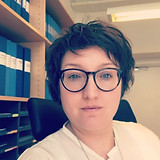School of Global Studies - Gothenburg
University of Gothenburg (UGOT) is one of the largest universities in Sweden with 37 000 students and 6000 employees. UGOT has a Centre of Global Migration (CGM) with the School of Global Studies (SGS) as the host department. CGM is a cross-faculty center in close collaboration with external local and regional actors, such as the municipality and local agencies as well as international and national research networks on migration.
The School of Global Studies (SGS) at the Faculty of Social Sciences is an interdisciplinary research and teaching environment. The School counts to 1,500 students and 110 staff. The Department constitutes of five disciplines/subjects; Peace- and Development, Social Anthropology, Environmental Social Science, Regional Studies, Human Rights, and World Culture and Globalized Heritage. SGS's research environment also comprises six interdisciplinary research groups. Three research groups are of particular relevance to DEMO. First, the research group on Migration and Diversity. The research carried out by members of this group concerns, for example, diaspora groups and explores the experiences of individuals – asylum-seekers, labor migrants, returnees and residents of multicultural neighborhoods – in relation to the globalizing politico-economic context within which their experiences are embedded. Second, the research group on Global Heritage Studies relates heritage to ongoing political, economic and social processes and brings into focus the way in which heritage is used within the politics of identity; in relation to rights, property and ownership; or in connection with the consumption of the past. Finally, the School of Global Studies has an interdisciplinary group of MENA-researchers, some of whom have an extensive knowledge of the Israeli context.

Prof. Isabell Schierenbeck
Isabell Schierenbeck is the head of DEMO in Gothenburg University. She is a Professor at the School of Global Studies. Her main research areas are nation/state building, democratization and political leadership in the Middle East, the Israeli/Palestinian conflict and Israeli domestic politics. She also does research on international development cooperation and ownership in Rwanda and Ethiopia. Her earlier research included studies on the barriers to care for patients suffering from mental illness in South Africa and Rwanda. She also conducted research in public administration with special focus on street-level bureaucrats and immigrant clients at Employment offices and Social welfare offices, and on the Social Insurance Office and clients on long-term sick leave. Isabell lectures and gives consultations as an expert on Middle Eastern politics for radio, TV and the daily press.

Prof. Lisa Åkesson
Lisa Åkesson is an anthropologist and a Professor at the School of Global Studies. Over the years, her research focused on transnational migration. Through themes such as remittances, conjugal relationships, child-care and return migration she had examined relationships between "stayers" and migrated family members in Europe and the US. Critical analysis of international policy on migration and development is also an area she studies as well as the globalised everyday life of migrants living in Sweden. Her present research focuses on North-South migration, specifically the new Portuguese migration to the former colonies of Angola and Mozambique. The main objective is to explore how this new form of mobility informs identities and power relations.

Britt-Marie Rákai
Britt-Marie Rákai is an economist and administrator of DEMO at SGS. At SGS she is responsible for research funding, administration and reporting




